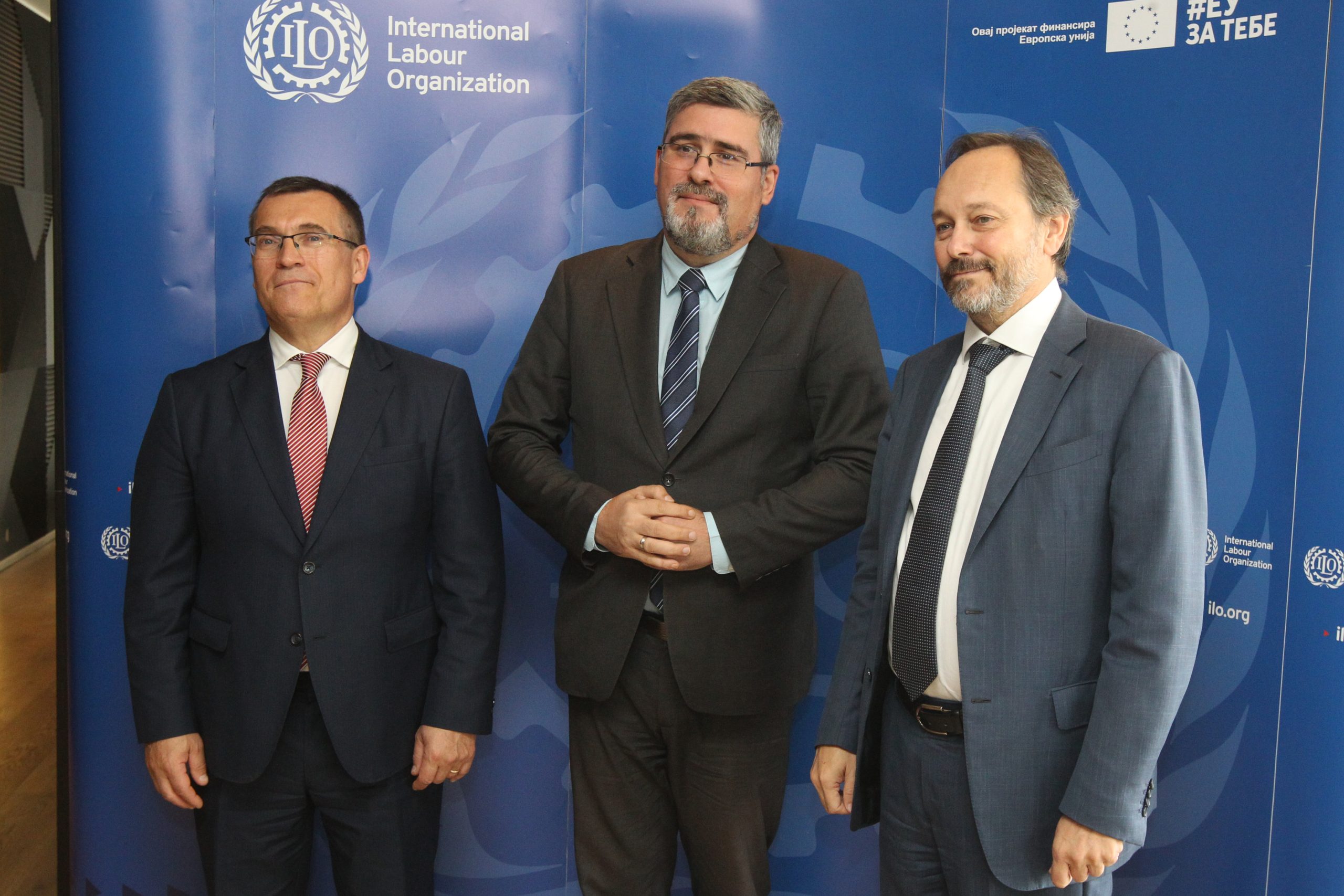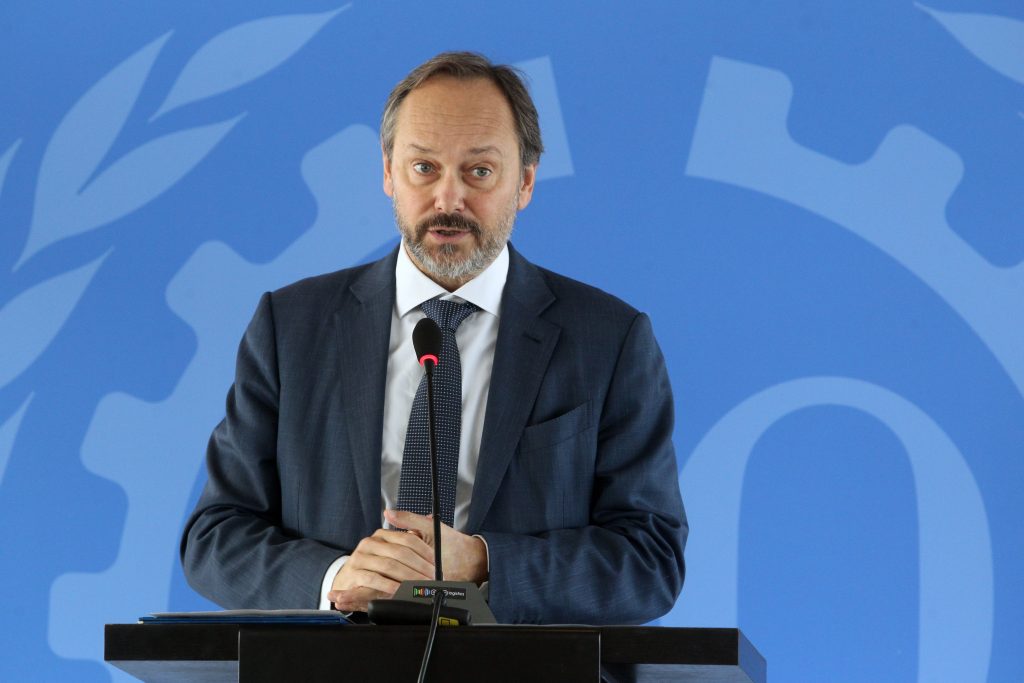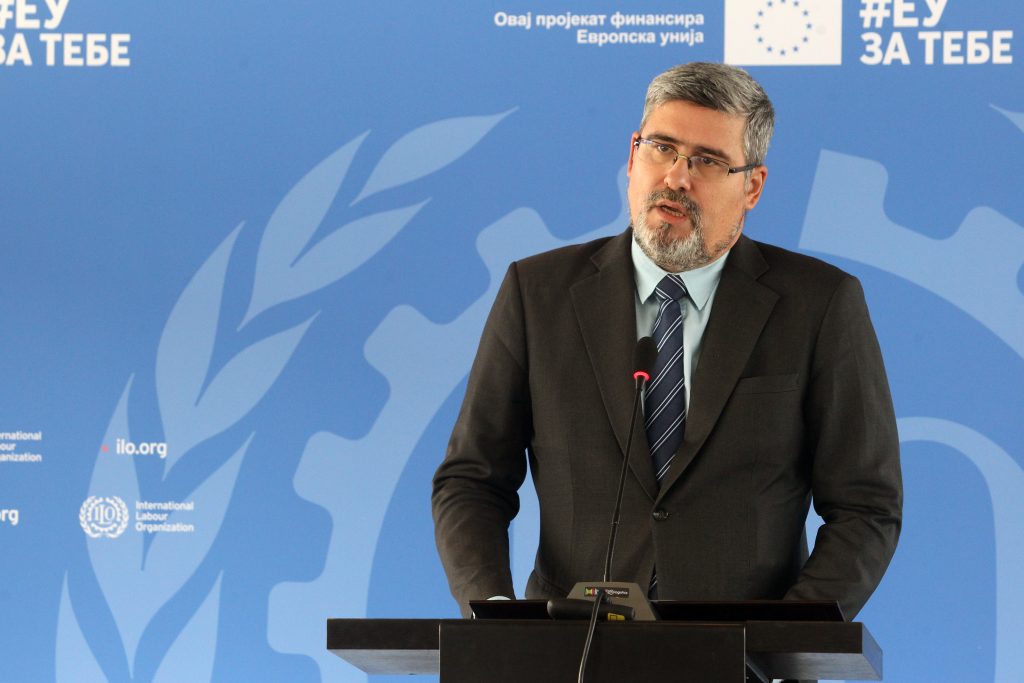The International Labour Organisation (ILO), in cooperation with the Delegation of the European Union in Serbia, launched the project “Strengthening social dialogue in the Republic of Serbia”. The project will be implemented over the next three years, and the EU has allocated one million euros for its implementation.
The project seeks to strengthen social dialogue in Serbia and allow the Government, employers and trade unions to create an environment where rights and obligations of workers and employers are well-balanced, in turn contributing to the creation of a more stable, equal and successful society.
EU Ambassador to Serbia Emanuele Giaufret attended the ceremony that kicked off this vital project and said he believed the new project supporting social dialogue support would contribute to improving the working conditions for all workers in Serbia.
“The workplace in the 21st century is changing rapidly, shifting the way working conditions are negotiated between employers and employees. Negotiations between employers and employees will contribute to improving the living and working conditions, from wages to working hours, annual leave or occupational health and safety. In turn, this will contribute to social well-being, good corporate governance and, ultimately, better productivity. The EU believes that a vigorous social dialogue between all interested parties is the best way to achieve results, and we are happy to have the opportunity to support such an effort,” said Ambassador Giaufret.
The Minister of Labour, Employment, Veteran, and Social Affairs, Nemanja Starović, pointed out that the project’s worth was reflected in the support of international partners and our capacity to respond to challenges.
“We will use this project to modernise and harmonise our labour legislation with international standards, which is a significant step forward for all citizens of the Republic of Serbia. We will be working on a new law that will enable social dialogue not just as a formality, but an all-inclusive, living practice. That way, we will ensure that our laws on labour, peaceful settlement of labour disputes, social and economic councils and worker strikes respond to the modern needs,” said the Minister, adding that the project outlines specific activities for strengthening the capacities of all interested parties, from the state administration to local self-governments and social-economic councils. Emmanuel Julien, Deputy Regional Director of the International Labour Organization for Europe and Central Asia welcomed the launch of the project.
“Social dialogue should not be just an abstract set of rules, but a process with both formal and informal aspects, adapted to Serbia’s needs, until it becomes a mature, useful, acknowledged, and results-oriented process in the society,” said Julien.
The secretary of the Federation of Independent Trade Unions of Serbia, Zoran Mihajlović, said that he was happy the project was launched, believing that social dialogue will return to the institutions and within the framework of the law.
“That is our task, and we must put in serious work to complete it, diligently and with dedication, because current situation is not exactly what it should be,” said Mihajlović.
Čedanka Andrić from the United Branch Trade Union “Nezavisnost” expects that the project will put a renewed focus on the importance of negotiations.
“There is a lot of work ahead of us, and it is a pleasure to be able to offer strong support. From our point of view, the crucial thing is to stop the defragmentation of the labour law”.
Miloš Nenezić, president of the Union of Employers, said that ILO and EU support is more than necessary for strengthening the social dialogue in Serbia, describing it as being at a genuinely low level.
“To further improve our society, it is necessary to prevent problems and take on the upcoming challenges successfully, and the only way this can be done is through a formal discussion of all three interested parties comprising this partnership at all levels – the republic, the provincial, and the level of local self-government,” said Nenezić.
“Effective social dialogue between the Government, workers’ organisations and employers is of critical importance for promoting social justice, inclusive economic growth, increasing wages and improving working conditions, as well as sustainable business. The International Labour Organisation will provide technical comments and recommendations relevant to the legal framework of social dialogue with the intention of improving crucial parts of labour legislation, such as the part related to tripartite and bipartite social dialogue, the Law on Peaceful Settlement of Labour disputes, the Law on Social-Economic Council and the Law on Strikes. Trade unions and employers’ organisations will receive support from our side in strengthening their capacities,” said Jovana Spaić Erdeljan, national coordinator of the International Labour Organisation project, and emphasised that by improving social dialogue, Serbia will be one step closer to membership in the European Union.
The project “Strengthening social dialogue in the Republic of Serbia” will be implemented through workshops, panels and practical training on the importance of negotiation, events and round tables, with the strong support of partners, namely the Ministry of Labour, Employment, Veteran, and Social Affairs, workers’ organisations and employers who are part of the tripartite mechanism of the International Labour Organisation, the Social and Economic Council and the Agency for Peaceful Settlement of Labour Disputes.











